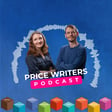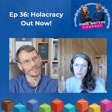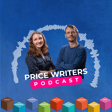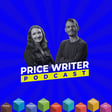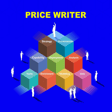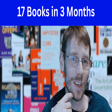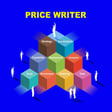
Books of 2024 on the Price Writer Podcast Episode 23
Books mentioned:
Best of the year
A Risky Business: An Actuary's Guide to Quantifying and Managing Risk in Society - Catrin Townsend
Non-fiction
Fluke - Dr Brian Klaas
Escape from Model Land - Erica Thompson
You're Better Than They Think You Are - Sir Rod Aldridge
Blue Ocean Strategy - W. Chan Kim, Renee Mauborgne
The Power of Moments - Chip Heath, Dan Heath
Enzo Ferrari - Luca Dal Monte
The Diary of a CEO: The 33 Laws of Business and Life - Steven Bartlett
Churchill - Andrew Roberts
Normandy ’44 - James Holland
D-Day - Antony Beevor
Stalingrad - Antony Beevor
Band of Brothers - Stephen E. Ambrose
D-Day - Stephen E. Ambrose
The Battle of the Atlantic - Jonathan Dimbleby
Masters of the Air - Donald L. Miller
Sicily '43 - James Holland
Becoming Superman - J Michael Straczynski
Midnight in Chernobyl - Adam Higginbotham
Challenger - Adam Higginbotham
Supercommunicators - Charles Duhigg
Methods of Persuasion - Nick Kolenda
Imagine Reading This Book - Nick Kolenda
Pre-Suasion - Robert Cialdini
The Challenger Sale - Matthew Dixon, Brent Adamson
Dark Psychology and Manipulation - Lucas Bailey
The Illusion of Choice - Richard Shotton
The Charisma Myth - Olivia Fox Cabane
Want - Gillian Anderson
We Can All Make It - Sara Davies
Single-Minded: My Life in Business - Claude Littner
Fiction
Leviathan Wakes - James S. A. Corey
Caliban's War - James S. A. Corey
Abaddon's Gate - James S. A. Corey
Cibola Burn - James S. A. Corey
Nemesis Games - James S. A. Corey
Babylon's Ashes - James S. A. Corey
Persepolis Rising - James S. A. Corey
Tiamat's Wrath - James S. A. Corey
Leviathan Falls - James S. A. Corey
The Three-Body Problem - Cixin Liu, Ken Liu
Pompeii - Robert Harris
Greyhound - C.S. Forester
The Roommate - Rosie Danan
Prelude to Foundation - Isaac Asimov
Foundation and Empire - Isaac Asimov
Second Foundation - Isaac Asimov
Precipice - Robert Harris
French Short Stories - Lingo Mastery
Short Stories in French - Olly Richards, Richard Simcott
French Sci-Fi Short Stories - Sebastian Cutillo
To Children
Skin in the Game - Jane Wurwand
I Am Malala - Malala Yousafzai
Jo Malone: My Story
The Trials of Life - David Attenborough
World War 1 & 2 History for Kids History Brought Alive
The Princess Bride - William Goldman
Tin Tin – various including TinTin on the Moon
Star Wars: In the Shadow of Yavin
Some of The Wizard of Oz Collection by - L. Frank Baum
The Princess Bride (again)
The Adventures of Parsley the Lion
Wonka - Sibéal Pounder, Paul King
Sing - Dreamworks
Both
My Family and Other Animals - Gerand Durrell
Kensuke's Kingdom - Michael Morpurgo
Our next event is Inspiring Pricing at Insurance Hall, London on 20th May 2025
Why attend?
🔹Discover how Inclusion, Integrity, and Innovation can Inspire Pricing Success
🔹Connect with leading pricing professionals and industry experts
🔹Take away practical tools to make real progress toward your goals
This isn’t just a conference. It’s about making real progress.
🎟 Price Writer members: £199
🎟 Non-members: £399
🔹 Only 50 tickets available!
Book now: https://inspire.pricewriters.com/
A big thank you to our sponsors Ascentia Partners | MavenBlue | Consumer Intelligence
I’d love to see you there
